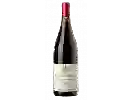
Domaine Philippe PortierLa Quincyte
In the mouth this white wine is a with a nice freshness.
This wine generally goes well with pork, vegetarian or shellfish.
Taste structure of the La Quincyte from the Domaine Philippe Portier
Light | Bold | |
Dry | Sweet | |
Soft | Acidic |
In the mouth the La Quincyte of Domaine Philippe Portier in the region of Loire Valley is a with a nice freshness.
Food and wine pairings with La Quincyte
Pairings that work perfectly with La Quincyte
Original food and wine pairings with La Quincyte
The La Quincyte of Domaine Philippe Portier matches generally quite well with dishes of pork, shellfish or spicy food such as recipes of vegetable planter, traditional tunisian couscous or pork colombo.
Details and technical informations about Domaine Philippe Portier's La Quincyte.
Discover the grape variety: Pinot
Pinot gris is a grape variety that originated in France (Burgundy). It produces a variety of grape specially used for wine making. It is rare to find this grape to eat on our tables. This variety of grape is characterized by small bunches, and small grapes. Pinot gris can be found in many vineyards: Alsace, South-West, Languedoc & Roussillon, Cognac, Bordeaux, Loire Valley, Champagne, Burgundy, Lorraine, Jura, Savoie & Bugey, Beaujolais, Provence & Corsica, Rhône Valley.
Informations about the Domaine Philippe Portier
The Domaine Philippe Portier is one of of the world's greatest estates. It offers 6 wines for sale in the of Loire Valley to come and discover on site or to buy online.
The wine region of Loire Valley
The Loire Valley is a key wine region in western France. It follows the course of the Loire River on its Long journey through the heart of France, from the inland hills of the Auvergne to the plains of the French Atlantic coast near Nantes (Muscadet country). Important in terms of quantity and quality, the region produces large quantities (about 4 million h/l each year) of everyday wines, as well as some of France's greatest wines. Diversity is another of the region's major assets; the styles of wine produced here range from the light, tangy Muscadet to the Sweet, honeyed Bonnezeaux, the Sparkling whites of Vouvray and the juicy, Tannic reds of Chinon and Saumur.
The word of the wine: Thermoregulation
Control of the vinification temperatures (by circulating hot or cold water on the walls of the vats, for example). This is a major step forward, which in particular helps to preserve the freshness of the aromas threatened by excessive temperature rises during fermentation.













